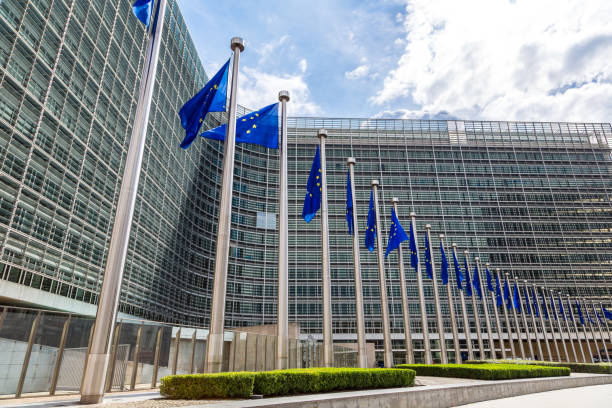Th EU, which launched Digital Markets Act — one of the most stringent internet regulatory laws globally, has now launched its first investigations under the act. And who else to be in the crosshairs first, than the tech-trifecta of Apple, Google (under its parent company Alphabet), and social media company Meta.
The investigations initiated by the European Commission cast a wide net, targeting various aspects of the operations of Apple, Alphabet, and Meta. At the heart of the investigations lie two key concerns: anti-steering and self-preferencing. Anti-steering practices prevent app developers from informing users about alternative app stores or more affordable subscription options outside of the company’s own app store. This restricts user choice and stifles competition within the digital marketplace.
Today we open 1st #investigations under the #DMA.
We are concerned #Alphabet, @Apple & @Meta are not meeting their obligations e.g:
?#Apple & #Alphabet still charge recurring fees to #app #developers
?#Meta offers no real choice for users to opt out of #data combination⬇️
— Margrethe Vestager (@vestager) March 25, 2024
“The way that Apple and Alphabet’s implemented the DMA rules on anti-steering seems to be at odds with the letter of the law. Apple and Alphabet will still charge various recurring fees, and still limit steering,” Margrethe Vestager, EU’s competition chief, said on Monday. Should the companies be found guilty of DMA violations, they could face significant financial penalties, amounting to up to 10% of their global annual revenue. The investigations are anticipated to conclude within a year, according to reports.
For instance, Apple’s App Store and Google Play Store have traditionally held a near-monopoly on app distribution for their respective operating systems (iOS and Android). Under the DMA, these companies are now obligated to allow app developers to inform users about alternative app stores and potentially cheaper pricing structures that might exist outside of their walled gardens. This development is hardly surprising – Apple, in particular, has found itself in the crosshairs of EU regulators in the past, having been subjected to significant fines for alleged DMA violations. Earlier this year, the company was fined a staggering €1.8 billion by the European Commission for imposing restrictions on app developers. Now, the Commission is looking into the matter to determine whether its practices violate the provisions of the DMA (same goes for Google and its Play Store).
“We’re confident our plan complies with the DMA, and we’ll continue to constructively engage with the European Commission as they conduct their investigations. Teams across Apple have created a wide range of new developer capabilities, features, and tools to comply with the regulation,” Apple said.
The next area of concern, self-preferencing, focuses on how search engines like Google might prioritize their own services within search results. The EU is investigating whether Google’s search algorithms give preferential treatment to its internal services, such as Google Shopping, potentially disadvantaging competing offerings from other companies. The investigation into Google will also delve into the effectiveness of its proposed solutions for complying with the DMA, particularly regarding self-preferencing within its search results. The EU is concerned that Google’s search algorithms might still favor its own services, potentially stifling competition and impacting user choice.
“The Commission has opened proceedings against Alphabet, to determine whether Alphabet’s display of Google search results may lead to self-preferencing in relation to Google’s vertical search services (e.g., Google Shopping; Google Flights; Google Hotels) over similar rival services. The Commission is concerned that Alphabet’s measures implemented to comply with the DMA may not ensure that third-party services featuring on Google’s search results page are treated in a fair and non-discriminatory manner in comparison with Alphabet’s own services, as required by Article 6(5) of the DMA,” the European Commission noted in a press release on the matter.
Apart from Google and Apple, Meta’s recently introduced “pay or consent” model in the EU has also drawn the attention of the EU regulators. This model allows users to opt out of targeted advertising by paying a monthly subscription fee. However, the EU is concerned that this presents users with a “binary choice” that lacks a truly free, non-personalized alternative. The DMA mandates that users have control over their personal data and how it is collected. The EU’s concern lies in the possibility that the lack of a free, non-personalized option within Meta’s model might violate these provisions and essentially force users to pay to maintain control over their data privacy. And the road does not end here – while Apple, Google, and Meta are the initial targets, the EU is also casting a watchful eye on other tech giants designated as “gatekeepers” under the DMA, such as Amazon and Microsoft.
The Tech Portal is published by Blue Box Media Private Limited. Our investors have no influence over our reporting. Read our full Ownership and Funding Disclosure →






